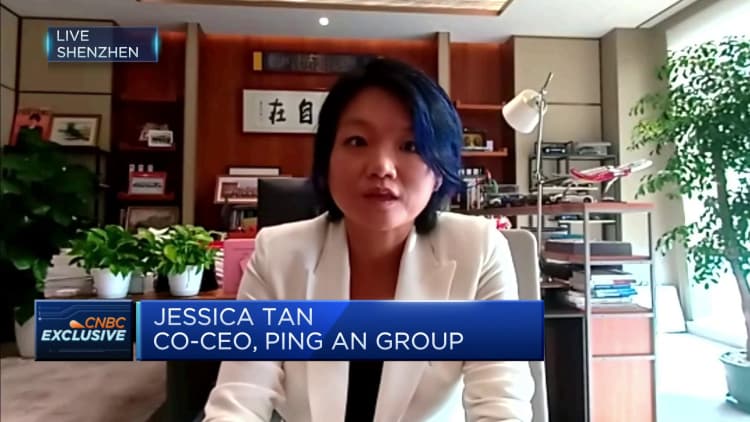Asia-Pacific shares were mixed on Wednesday after the Dow Jones Industrial Average and S&P 500 posted their third day of losses in the U.S.
Mainland China markets slipped. The Shenzhen Component led losses regionally, tumbling 2.88% to end the session at 12,096.39. The Shanghai Composite was 1.86% lower to close at 3,215.20.
Hong Kong's Hang Seng index dropped 1.07% in the final hour of trade, with the Hang Seng Tech index losing 2.72%. Electric vehicle maker Xpeng plunged more than 12% after it reported a wider-than-expected quarterly loss.
Japan's Nikkei 225 closed 0.49% lower at 28,313.47 and the Topix also ended the session 0.22% lower at 1,967.18.
The S&P/ASX 200 in Australia gained 0.52% to 6,998.1 while South Korea's Kospi was up 0.5% at 2,447.45 and the Kosdaq advanced 1.24% to 793.14.
Overnight in the U.S., the Dow slipped 154.02 points, or 0.47%, to 32,909.59. The S&P 500 dropped 0.22% to 4,128.73, and the Nasdaq Composite was slightly lower at 12,381.30.
Federal Reserve Bank of Minneapolis President Neel Kashkari pointed towards supply-side shocks driving "half to two-thirds" of the nation's high inflation.
"The more help we get from the supply side, the less the Fed has to do, and the better we're able to avoid a hard landing," he said, speaking at an event at the University of Pennsylvania. He did add, however, there's some evidence that supply chains are beginning to normalize.


